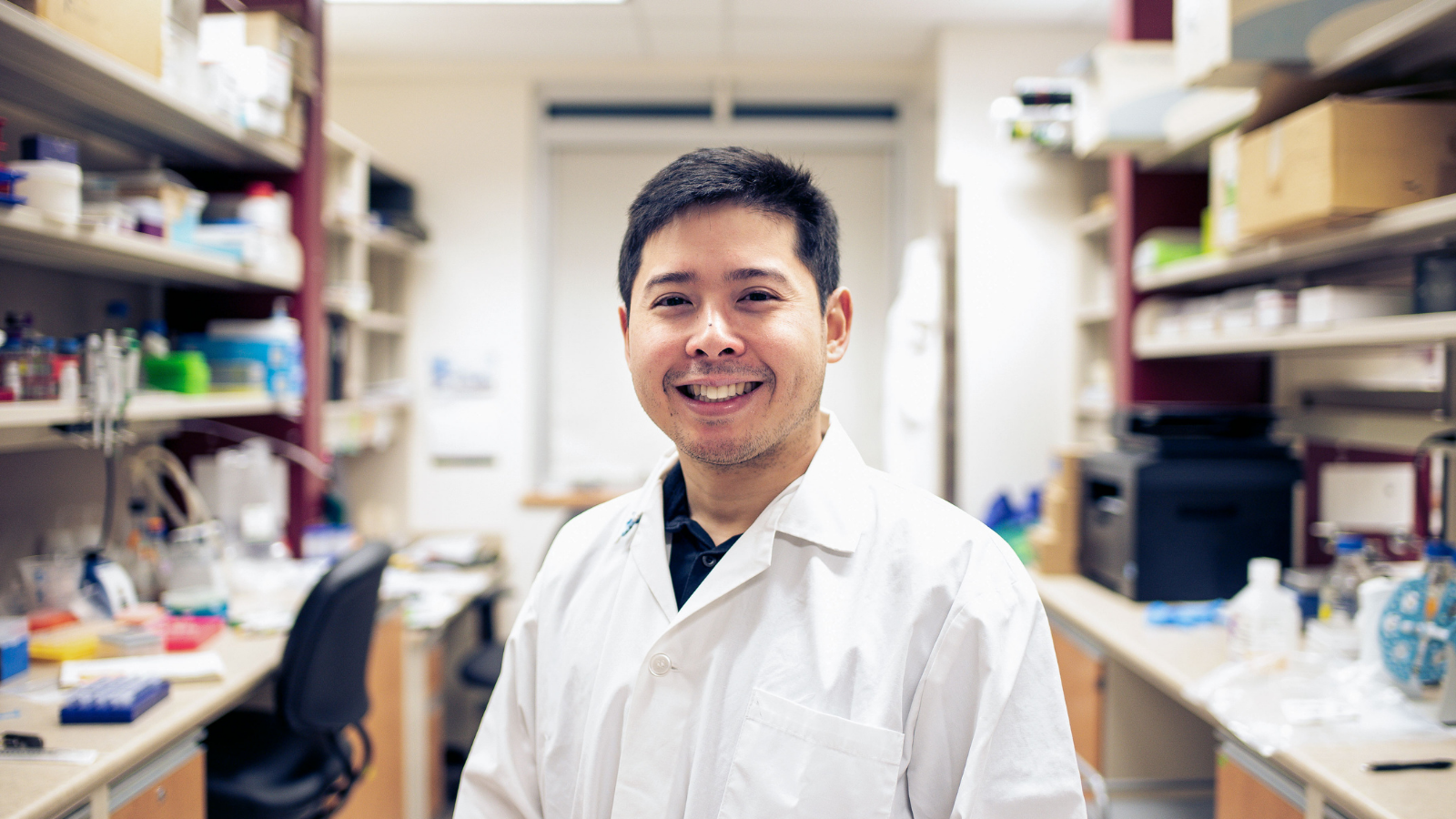John is a Canada Research Chair in Pharmacotherapy of Energy Metabolism in Obesity and much of his work goes after the deadliest consequence of diabetes: heart disease. From identifying a protein that causes heart failure in diabetic patients to developing drugs that can prevent obesity-induced diabetes itself, his lab strives to identify novel ways to prevent and reverse diseases associated with obesity.
Throughout June, the University of Alberta is celebrating innovators like John who have contributed to the U of A’s long history of leading the world in diabetes research and treatment — beginning with James Collip's involvement with the discovery of insulin all the way to the development of the Edmonton Protocol which has revolutionized how diabetes is treated around the world. On June 16, the Alberta Diabetes Institute is hosting a half-day symposium to celebrate the discovery of insulin’s 100th anniversary.
In this week’s Innovator Spotlight, John gives us some insight on the virtue of unfocused focus.
How do you describe your work to people who don’t work in your field?
It is now gaining increasing recognition that when people are obese, the ability of their organs (e.g. heart, muscle) to burn fuel for energy malfunctions or becomes defective. Our lab focuses on discovering what is responsible for this phenomenon.
What’s one big problem you want to solve through your work?
The major health problem my lab hopes to solve is whether remedying these defects in how the body burns fuel for energy can lessen the risk of chronic diseases associated with obesity, such as type 2 diabetes and heart disease.
What does the word “innovation” mean to you?
In my personal opinion, innovation in the biomedical sciences means tackling a problem from multiple perspectives and using a variety of approaches to discover new ways to fix that problem to improve the quality of life and health of the human population.
What’s been your biggest a-ha moment — in life or work — so far?
Honestly speaking, I don’t believe I’ve experienced that moment yet with my research. One thing I learnt from my mentor (Dr. Daniel Drucker) during my postdoctoral fellowship, is that as scientists we are often wrong, and so much of our time is spent on figuring out why we were wrong, which ultimately leads to us answering our original question and generating new knowledge. This has definitely proven true for me since starting my lab in 2014, but I do hope that I can experience a true “a-ha” type of moment before I retire!
Do you have a role model at the U of A? How have they influenced you?
I’ve been very fortunate to have many mentors at the U of A who have influenced me in numerous ways, including Dr. Gary Lopaschuk, Dr. Jason Dyck, Dr. Sandra Davidge, Dr. John Seubert, and Dr. Evangelos Michelakis to name a few.
A specific influence that has stayed with me from my PhD training to the present, though, stems from something I learnt from Dr. Michelakis, which is “stay focused but be unfocused.” The phrase is confusing as it’s an oxymoron. However, this is something that has always resonated with me and encouraged me to not abandon what I’m good at, but to also not be afraid to dive into something that excites me as a scientist, even if I am less knowledgeable in the area.
This conversation has been edited for brevity and clarity.
Innovator Spotlight is a weekly feature that introduces you to a faculty or staff member whose big ideas are making a big difference.
Do you know someone who’s breaking boundaries at the U of A? (Maybe it’s you!) We’re interested in hearing from people who are creating new solutions to make our world better. We want to feature people working across all disciplines, whether they’re championing bold ways of thinking, driving discovery or translating insights from the lab into the market.
Get in touch at blog@ualberta.ca.
